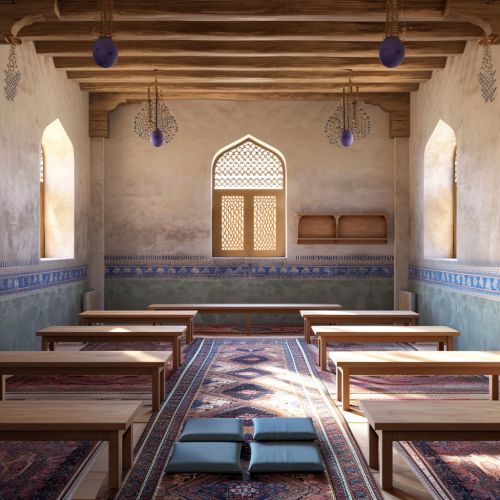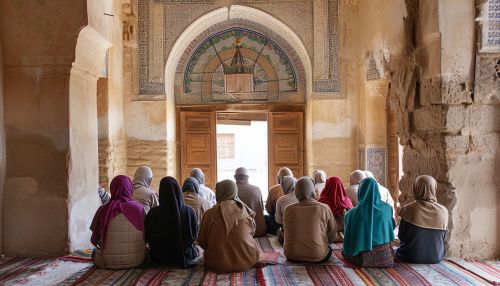Tabari
Early Life
Tabari was born in the winter of 839 CE to an educated family in Amol, Tabaristan (modern Mazandaran Province), a region in the north of Iran. His father, Sahl ibn Bishr, was a jurist and had a great influence on Tabari's interest in the study of law and jurisprudence.
Education
Tabari began his education at an early age, studying the Quran and literature. He left his hometown at the age of twelve in 851 CE to pursue higher education in Rayy, a major center of learning in the Islamic world. After five years in Rayy, Tabari traveled to study in other key centers of Islamic learning, such as Baghdad.


Works
Tabari was a prolific writer and his works covered a wide range of topics including jurisprudence, theology, and history. His most influential works are his Qur'anic commentary, known as Tafsir al-Tabari, and his historical chronicle, Tarikh al-Rusul wa al-Muluk (History of the Prophets and Kings).
Tafsir al-Tabari
Tafsir al-Tabari is one of the most widely used commentaries on the Quran. It is considered an authoritative source by many scholars due to its comprehensive coverage of the Quranic verses and its use of Hadith and reports from the early Islamic scholars.
Tarikh al-Rusul wa al-Muluk
Tarikh al-Rusul wa al-Muluk, often referred to as Tarikh al-Tabari, is a comprehensive historical chronicle covering the history of the world from the time of creation until 915 CE. It is considered one of the most important sources of early Islamic history.
Influence
Tabari's works have had a significant influence on Islamic scholarship. His historical chronicle is considered one of the earliest and most important sources of Islamic history, while his Qur'anic commentary is still widely used by scholars and students of the Quran.
Death
Tabari died in Baghdad in 923 CE. His death marked the end of a prolific career that left a lasting impact on Islamic scholarship.
Legacy
Tabari's legacy is evident in the continued use and study of his works. His Qur'anic commentary and historical chronicle are considered seminal works in their respective fields and continue to be studied by scholars and students of Islamic studies.
